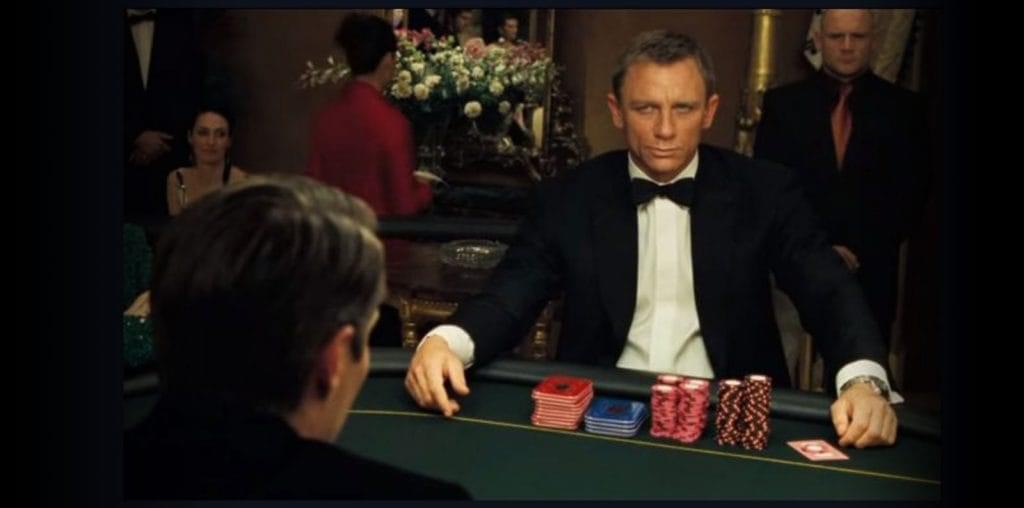
BOOTLEG FILES 382: “Olympia” (1938 documentary directed by Leni Riefenstahl).
LAST SEEN: The full film is available on the Internet.
AMERICAN HOME VIDEO: There have been commercial releases on VHS, laserdisc and DVD, along with tons of bootleg copies sold in retail channels.
REASON FOR BOOTLEG STATUS: Many people claim the film is in the public domain.
CHANCES OF SEEING A COMMERCIAL DVD RELEASE: It already had one, but you cannot stop the bootleggers!
Leni Riefenstahl’s “Olympia” has always been a source of controversy and confusion. The film represents a riot of emotions: it is artistic and pretentious, engaging and irritating, provocative and evasive, hypnotic and boring. With its unruly running time and devotion to a certain ex-housepainter from Austria, the film’s commercial viability has never been easy to endure. Yet its groundbreaking achievement within the non-fiction film genre makes it impossible to ignore.
In producing and directing “Olympia,” Riefenstahl found herself inventing a new subgenre: the sports documentary. Sports events had been filmed since the days of the kinetoscopes, but until “Olympia” there had never been a feature-length non-fiction production devoted entirely to a sports event. For that reason alone, the film is a milestone.
However, the Berlin Olympics was far too sprawling to be captured in the course of a single film. With more than 4,000 athletes participating in 129 events, Riefenstahl had a ridiculous surplus of happenings to capture. But Riefenstahl approached a great deal of the Olympics by either ignoring what was taking place or telescoping the competition into such a limited manner that it was impossible to follow.
The opening of “Olympia” is both startling and campy: Riefenstahl’s camera rolls through the ruins of Olympia in Greece, before a montage of remarkable ancient statues segues into a celebration of contemporary individuals engaged in the sports of the original Olympiad. Riefenstahl cast a number of muscular young Aryan men and nubile young Aryan women to recreate the original Olympiad, and she had them wear nothing but flesh-colored g-strings. (The women were instructed to go topless.) The resulting spectacle is visually breathtaking thanks to its crisp cinematography, but it is also utterly laughable with its stoic display of nubile flesh and hard-bodied flexing.
Fans of nude men got a second serving in the opening sequence of the film’s second half, which includes happy guys romping about through a misty morning sans clothing. Hey, it could be worse – at least they weren’t playing ring toss with their erections.
Of course, you cannot have a Nazi film without Hitler, and Der Fuehrer shows up in the opening ceremonies. While Hitler had to endure the opening parade of nations representing a wide variety of racial and ethnic heritages, “Olympia” makes sure that the majority of the running time is devoted to northern European athletes. Except for the Japanese athletes, the Asian participants barely show up in “Olympia” – and don’t go looking for Latin American or Caribbean athletes, since they are also excluded from the film. Obviously, the film could not ignore the U.S. team, but the racial hysteria was so deep that the film’s English-language narrator constantly reminds the viewer that Jesse Owens and the other black are examples of the “American Negro” (as opposed to being an “American”).
Throughout “Olympia,” Riefenstahl gives endless attention to the athletes’ bodies – especially the male athletes in the track and field competition. When it comes to the discus throw, shot put or javelin, Riefenstahl is rarely interested in following the hurled objects across the field. Instead, the bulk of the footage for these events focuses on large, burly (and mostly Northern European) men who spin and thrust in slow motion. The off-screen narrator informs the viewer of the result of the men’s efforts while the camera frames their bodies for cinematic immortality.
For the diving and gymnastics events, Riefenstahl no longer cares who is winning. “Olympia” becomes a tribute to the athletic body as slow motion cinematography captures every twirl and flex to the overbearing symphonic music of Nazi hack composer Herbert Windt.
At no point in “Olympia” does Riefenstahl allow the viewer to truly know the athletes. Except for a very brief moment when a smiling Jesse Owens stands and faces the camera, the athletes are kept at a safe distance. No one is interviewed, few are identified by their full names, and many receive no identification at all. But the camera keeps a voyeuristic gaze as they stretch, lounge and shamble about.
However, “Olympia” occasionally managed to find time to cover the historic-making sporting achievements. Jesse Owens’ gold medal triumph was given full coverage, and the marathon victory by Korean Sohn Kee-chung (who was forced to run on the Japanese team as Son Kitei, because Japan occupied Korea) was brilliantly preserved in the film. But those moments were few and far between.
The U.S. distribution history of “Olympia” has been a tortured affair. Riefenstahl brought the film to Hollywood in 1938, amid protests by anti-Nazi advocacy groups. To please her guests, the director edited out nearly all of the footage where Hitler was present. Although the film community received her cordially, no studio was interested in distributing a two-part, three-and-a-half-hour sports documentary from an event that took place two years earlier.
“Olympia” had its U.S. theatrical premiere in 1940 in a brief, badly promoted engagement at a tiny cinema in a predominantly German-American neighborhood of New York City. Beyond that venue, it was unknown to Americans until after World War II. In 1955, film archivist and collector Raymond Rohauer claimed the U.S. copyright on “Olympia” and circulated prints of “Olympia” without Riefenstahl’s permission. (The director always said she had copyright ownership on the film, although many experts have disputed her claims.) Although it was used by in the 1950s as a training movie for the sports departments of the TV networks, the film was never shown on U.S. television until a 1972 PBS broadcast.
There have been three official commercial home entertainment releases in the U.S.: The Criterion Collection presented “Olympia” on laserdisc in 1997, Home Vision Entertainment offered a VHS release in 2000 and Pathfinder Home Entertainment put out a DVD version in 2006. There have also been numerous bootleg releases, including some that present the German-language version without English subtitles. Most of these bootlegs are pretty poor and seem to come from 16mm prints from the Rohauer distribution period. Online video fanatics have also presented unauthorized postings of the full film all over the Internet
Yes, “Olympia” is a very important film within the full context of cinema history. Whether or not it is a great film is strictly a matter of opinion.
IMPORTANT NOTICE: The unauthorized duplication and distribution of copyright-protected material, either for crass commercial purposes or profit-free s***s and giggles, is not something that the entertainment industry appreciates. On occasion, law enforcement personnel boost their arrest quotas by collaring cheery cinephiles engaged in such activities. So if you are going to copy and distribute bootleg material, a word to the wise: don’t get caught. Oddly, the purchase and ownership of bootleg DVDs is perfectly legal. Go figure!


I think she did not know she was a fascist, or maybe it would be anachronistic to expect her to know, since the term itself has by now acquired meanings that would make it impossible for anyone to say “and I am one, too”.
I saw some place where she was told that her films were propaganda and she answered that far from that, they were truth and nothing but truth, and I think she believed it.